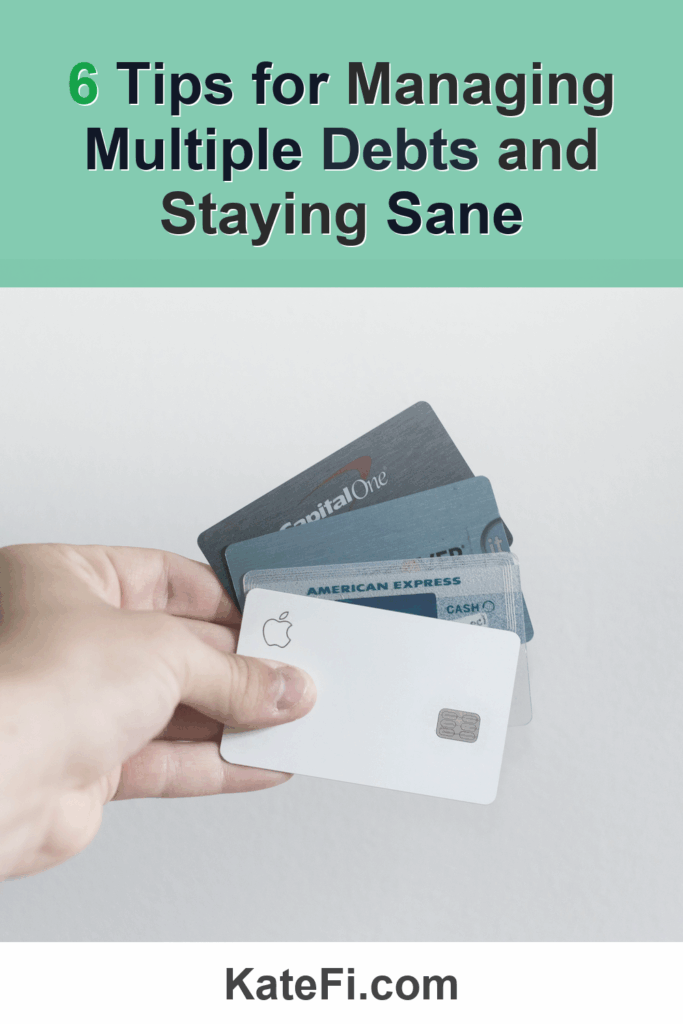How to Negotiate with Creditors: 10 Tips for Success
Navigating the waters of debt can feel overwhelming, especially when you’re faced with relentless calls from creditors and mounting interest fees. Imagine this scenario: Sarah, a hardworking mother of two, found herself in deep financial trouble after a series of unexpected medical bills. With mounting debts and little hope of relief, Sarah knew she needed to take action. Her journey to negotiate with her creditors not only helped her regain control over her finances, but it also taught her invaluable lessons that anyone in a similar situation can benefit from.
Love our content? Show your support by following us — pretty please!🥺
FOLLOW ON PINTEREST
Hi! I’m Kate, the face behind KateFi.com—a blog all about making life easier and more affordable.
This article dives deep into the strategies Sarah used during her negotiation process, helping you understand how to tackle your own creditor negotiations and slow the snowball effect of interest and fees.
The Problem with Debt: Understanding the Snowball Effect
Understand pros/cons of settlement vs consolidation vs DMP for your exact mix of debts.
Not available in IL, KS, OR, TN, UT, WV.
When debts accumulate, they often come with high-interest rates and hidden fees. In Sarah’s case, a few unpaid medical bills quickly morphed into thousands of dollars due to exorbitant interest rates. The interest accrued not only increased her overall balance but made her feel as if she was stuck in a never-ending cycle of payments without seeing any progress.
Many individuals facing similar challenges often don’t realize that the longer they wait to address their debts, the more they will pay in interest and fees. Negotiating with creditors can slow this process down, allowing you to regain control and work towards financial stability.
10 Tips for Successful Negotiations with Creditors
What You’ll Learn on the Call
- Estimated timeline and monthly payment range
- How credit may be affected in the short term
- What documents to gather to move faster
Not available in IL, KS, OR, TN, UT, WV.
Now that we understand the stakes, let’s take a closer look at the strategies Sarah employed in her negotiations with her creditors:
- Know Your Situation: Before approaching any creditor, Sarah took the time to assess her financial situation. This included calculating her total debt, income, and expenses. Being well-informed allowed her to confidently explain her circumstances to creditors.
- Gather Documentation: Sarah gathered all relevant documents, including pay stubs, bank statements, and debt statements. This helped her present a clear picture of her financial situation. For faster reviews during consultations, be ready to present:
- List of all creditors and amounts owed
- Recent credit report
- Income verification documents
- Monthly expense breakdown
- Set a Clear Goal: Sarah determined her goals before her discussions. Did she want a lower interest rate? A reduced monthly payment? Understanding what she wanted helped her stay focused during negotiations.
- Start with a Lower Offer: Sarah learned that it’s often wise to begin negotiations with a lower offer than what she hoped to achieve. This gave her room to negotiate upwards while still reaching a satisfactory agreement.
- Be Polite but Firm: Throughout her conversations, Sarah remained respectful and calm. Politeness can often disarm the other party and lead to better outcomes. Remember, you catch more flies with honey!
- Be Prepared for Rejection: Not every negotiation will go as planned. Sarah faced rejection at times but viewed it as an opportunity to reassess her position and improve her strategy for the next discussion.
- Ask for Temporary Relief: If you are struggling to make payments, consider asking for temporary relief such as a payment freeze or a reduction in interest. Sarah found that many creditors were willing to work with her if she clearly communicated her hardships.
- Follow Up in Writing: After reaching an agreement, Sarah always followed up with a written confirmation. This ensured that both parties were on the same page regarding terms and conditions.
- Seek Professional Help: When negotiations felt daunting, Sarah decided to consult a debt relief counselor. They provided her with insights into possible programs that could help her further negotiate her debts and guide her through the process.
- Maintain Communication: Even after reaching agreements, Sarah kept the lines of communication open with her creditors. Regular check-ins helped her maintain a positive relationship and ensured her creditors were aware of her ongoing commitment to pay off her debt.
✅ See If You Qualify for Debt Relief
The Impact of Negotiations on Your Credit
👉 Start Your Free Debt Relief Review
Not available in IL, KS, OR, TN, UT, WV.
It’s important to note that while negotiating with creditors can be beneficial, it may have some impact on your credit score. Each negotiation and missed payment can slightly lower your score, especially if the creditor reports it to the credit bureaus. However, regaining control over your financial situation is often worth the temporary dip in your score.
To minimize the impact, consider asking creditors if they can report the payments as “settled” rather than “delinquent.” This approach can help cushion your score from being hit too hard.
Comparative Insights: DIY vs. Professional Assistance
As you ponder the best route for your debt negotiations, you might be weighing whether to tackle this on your own or seek professional help. Here’s a quick comparison table to help you understand the differences:
| Criteria | DIY Negotiation | Professional Assistance |
|---|---|---|
| Knowledge of the Process | Moderate | High |
| Time Investment | High | Lower |
| Emotional Toll | Potentially High | Supportive Guidance |
| Success Rate | Variable | Typically Higher |
| Ongoing Support | Minimal | Continuous |
Ultimately, choosing to seek professional assistance can provide you with an invaluable advantage, guiding you toward more favorable outcomes while alleviating some emotional burden.
Consulting a Debt Counselor
If negotiating with creditors feels overwhelming or if you find yourself stuck, a debt relief counselor may be the answer. These professionals are well-versed in the ins and outs of debt negotiation and can provide personalized guidance tailored to your situation.
When consulting a counselor, consider asking the following questions:
- What options do I have for negotiating with creditors?
- How can you help me reduce my monthly payments?
- What documentation will you need from me?
- Can you provide examples of past successes with clients in situations similar to mine?
These questions will not only help you gauge their expertise but will also ensure you are on the right path to finding a viable solution to your debt problems.
✅ See If You Qualify for Debt Relief
Lessons Learned from Sarah’s Journey
Sarah’s experience negotiating with her creditors was far from easy, but her perseverance paid off. Here are the key lessons she learned along the way:
- Preparation is Key: The more informed you are about your financial situation, the better equipped you’ll be to negotiate successfully.
- Stay Resilient: Not every call will yield a positive outcome, but persistence is crucial.
- Leverage Resources: Don’t hesitate to reach out for help from professionals who can guide you through the maze of debt negotiation.
By following Sarah’s journey and implementing these tips, you can effectively negotiate with your creditors, slow down the accumulation of interest and fees, and start taking control of your financial future.
Your Next Steps
If you find yourself struggling to negotiate with your creditors or simply don’t know where to start, consider taking the first step by reaching out for professional assistance. A debt relief counselor can review your situation, offer guidance, and help you craft a solid plan to tackle your debts effectively.
✅ See If You Qualify for Debt Relief
Important: This content is for education only—not legal, tax, or financial advice. Results and eligible programs vary by situation and state. Fees apply if you enroll and complete a program. Debt relief can affect credit; missed payments may lead to collections/lawsuits. Not available in IL, KS, OR, TN, UT, WV.
In the face of financial challenges, remember that there is always a path forward. With the right strategies, support, and determination, you can successfully negotiate with your creditors and take the first steps towards achieving financial freedom.






















